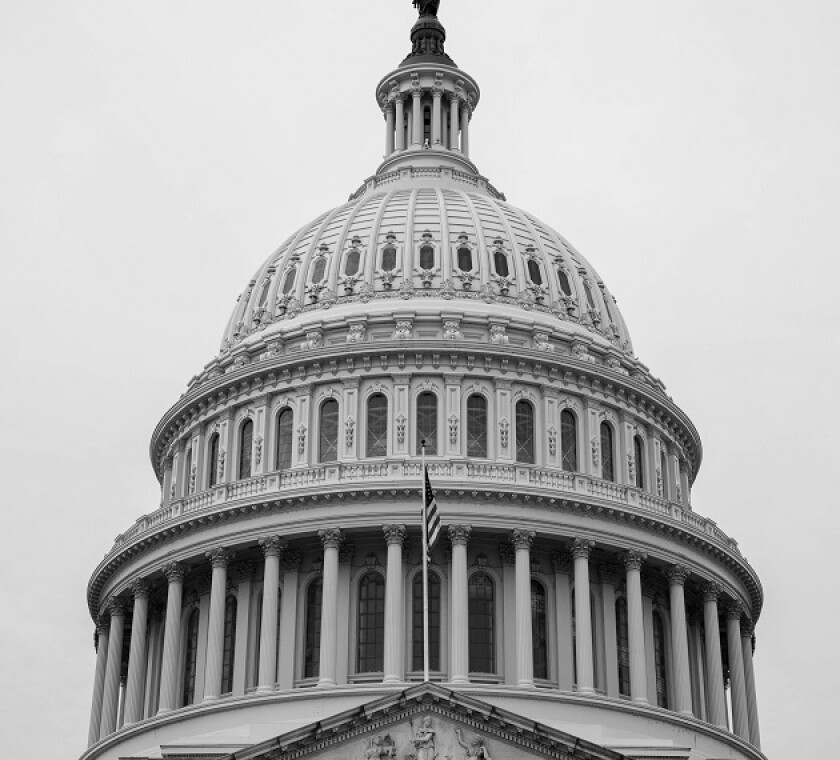The Senate Finance Committee is working on a reform bill, including a proposal to abolish the tax advantage of ETFs. The proposal would extend taxation to previously exempt in-kind redemptions. This could be the end of the so-called ‘heartbeat’ trend.
ETFs have been a staple of tax-efficient investments for decades. Yet ‘heartbeats’ have taken this trade to a whole new level, inflating securities and making tax savings for investors.
Redemptions from ETFs have historically been tax exempt, but this may be about to change. The figures are not insignificant since the biggest 25 ETFs distributed gains of $60 billion in 2015, according to a Fordham University study.
The Finance Committee has set out proposals to eliminate the pass-through tax treatment for master limited partnerships. These plans could raise a projected $172 billion, as part of an effort to fund a $3.5 trillion budget.
The Biden administration is looking to raise a lot more tax revenue, which it needs to support spending in key areas while managing the vast debts incurred during the COVID-19 pandemic.
Top ITR headlines this week include:
CJEU sets aside 2019 decision in Belgian state aid case
Businesses to face more pressure from HMRC over data access
Tax transparency increasingly crucial for attracting investment
Multinational companies are looking to move their supply chains out of China
Tax transparency increasingly crucial for attracting investment
Corporate investors are increasingly using company tax policy as a metric by which to measure the risk profile of multinational enterprises (MNEs), according to speakers at a University of St Gallen conference.
MNEs that can demonstrate that they pay a fair amount of tax are at an advantage when it comes to attracting investment, said tax professionals speaking at a conference on tax and sustainability organised by the University of St Gallen in Switzerland.
Voluntary tax transparency represents only a nominal investment for MNEs, but tax directors should carefully weigh up how much information to share.
“We think that giving transparency to our tax approach is important to attract and retain investors,” said an MNE head of tax. “A sustainable company… is a less risky company”.
The term ‘sustainable’ here refers to a company’s tax policy, including whether it is future-proof, resilient, and transparent. This includes both the amount of data that the company shares publicly, and whether the taxes paid are perceived to be fair.
As investor interest in companies’ environmental, social, and governance (ESG) credentials grows, a slew of ESG ratings companies are including tax transparency in their calculations. Credit rating agencies such as MSCI, Sustainalytics, FTSE Russell, Vigeo Eiris, and S&P Global assess factors including a company’s tax disclosure by country, board and audit committee oversight of tax policy.
The credit agencies will also take into account the company’s presence in jurisdictions listed as offshore financial centres by the International Monetary Fund (IMF).. The results could determine which company investors decide to back.
“It’s more difficult to get money for non-ESG ranked organisations… [your ESG ranking] influences your ability to attract capital from the capital markets,” said a tax advisor.
Multinational companies are looking to move their supply chains out of China
Following the pandemic disruptions to the global supply chain, many companies are focusing on reshoring and nearshoring their Chinese operations.
Even before the COVID-19 pandemic hit, businesses were investing more in supply chain strategies that would allow them to cut costs, automate processes and expand their reach.
Manufacturers are starting to focus on alternative sourcing strategies for their supply chains. As a result of the pandemic, companies are planning to move their sourcing to countries like Vietnam, India, or Mexico.
“The world was outsourcing to China, but people are now looking at localisation or reshoring closer to their customers or their production for easy procurement,” said Jiger Saiya, partner and leader of tax and regulatory services at BDO, while moderating a panel at ITR’s Asia Tax Forum.
Multinational companies have shown an intention to relocate operations out of China, with Southeast Asia becoming a hotspot for shipping and production. There is also an increasing interest in reshoring and nearshoring with regional hubs being set up.
“Companies have realised that they cannot rely on a single supplier. We cannot go to the lowest cost supplier, we also need to see if they are capable of handling bigger disruptions,” said the head of supply chain at a Dutch lighting company.
“Earlier, you always gave 100% of your business to the lowest cost supplier but with the disruptions in China and the whole world, the electronics industry was specifically paralysed, and we are yet to recover from that. So, every industry is looking for alternatives and moving towards a sustainable supply chain rather than an opportunistic or cost efficient one,” he added.
Next week in ITR
ITR will be following up on its coverage of tax transparency with a look at how multinational companies can use such measures to manage tax risks. The rise of reporting frameworks has forced many companies to raise their standards.
Meanwhile, the Indian Supreme Court has delivered a landmark ruling on a CGST inverted duty refund case with widespread implications for companies doing business in India. ITR will be taking an in-depth look at the impact on taxpayers.
At the same time, businesses across the Asia-Pacific region are facing a wave of audits and transfer pricing (TP) is very much the focus of growing scrutiny. Many companies are working on the narrative aspect of TP documentation in response.
Readers can expect these stories and plenty more next week. Don’t miss out on the key developments. Sign up for a free trial to ITR.













